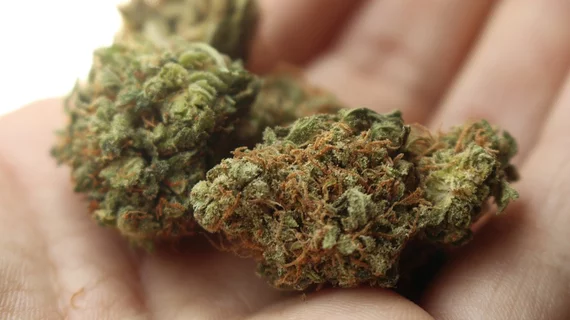Cannabis use disorders double risk of MI after surgery
Surgical candidates with active cannabis use disorders were nearly twice as likely as their non-user peers to suffer a heart attack after surgery, according to research published in Anesthesiology on Nov. 25.
Karim S. Ladha, MD, MSc, and colleagues at St. Michael’s Hospital of Unity Health Toronto analyzed the medical records of more than 4 million adults who underwent one of 11 common elective procedures between 2006 and 2015, including knee and hip replacements, gallbladder removals, C-sections and hysterectomies. In a release, Ladha said the team’s study is a first step in determining whether there’s a connection between cannabis use disorders and perioperative outcomes.
Administrative data out of the U.S. suggests cannabis use disorders, defined as marijuana dependence or abuse, have been on the rise in the 2010s. While there’s still a lot we don’t know about cannabis abuse, the National Institute on Drug Abuse states most adults seeking treatment for marijuana use disorders have typically used marijuana every day for at least a decade and have tried to quit more than six times.
Ladha et al.’s primary outcome was a composite of in-hospital postoperative MI, stroke, sepsis, deep vein thrombosis, pulmonary embolism, acute kidney injury requiring dialysis, respiratory failure and in-hospital mortality. The team’s propensity-score matched-pairs cohort ultimately consisted of 27,206 patients.
The authors reported no statistically significant difference between patients with or without a reported active cannabis use disorder in regards to the study’s perioperative outcome, but the odds of experiencing a post-op MI were 88% higher in those who said they abused cannabis.
“While cannabis is often purported as being safe or benign, we don’t fully understand the health implications of this drug, particularly in heavy users,” Ladha siad. “The results of this study make it clear that we need to pay more attention to cannabis users undergoing surgery.”
Ladha said the research team will continue to follow surgical patients with self-reported cannabis use using a more detailed method of data collection.

